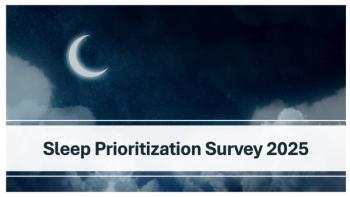
Acid Reflux Worsens Sleep Quality, and the More (and Longer) You Have It, the Poorer Your Sleep
A large prospective study found large, statistically significant effects of heartburn on sleep quality.
To all the potential reasons for getting a poor night’s sleep, add this: acid reflux.
A long-term prospective investigation of nearly 50,000 participants in the Nurses’ Health Study II found a clear relationship between gastroesophageal reflux (GER) symptoms and disturbed sleep overall as well as each type of sleep problem measured.
The relative risk for poor sleep was 1.53 for participants who reported symptoms of heartburn more than once a week compared with those who experienced them less than once a month, according to
The risk of specific sleep issues among those who reported GER two or more times per week compared with those who reported none were similar for difficulty falling asleep, excessive daytime sleepiness andfor restlessness during sleep.
Duration of acid reflux showed bigger differences: Compared with those who had not had symptoms once or more per week, the relative risk for poor sleep quality overall was 1.22 for women with GER symptoms at least weekly for less than four years, 1.38 for four to seven years and 1.36 for those reporting symptoms over eight years or more.
Related:
About 20% of the U.S. population experiences GER at least weekly, and the prevalence of
As much as 10% of the population has
Last author
Large numbers of participants who developed acid reflux used proton pump inhibitors — a class that includes Prevacid (lansoprazole), Prilosec (omeprazole) and Nexium (esomeprazole) and/or histamine-2 receptor antagonists — a class that includes Zantac (ranitidine) and Pepcid (famotidine). The medications lessened the association between GER symptoms and sleep quality but did not erase it.
It's unclear to what extent the study findings apply to the general population: participants were 100% female, all aged 48 to 69 (median age: 59) and 95.2% white, although none of the above were listed as limitations by the authors.
It’s also unclear why exactly acid reflux contributes to poorer sleep quality. But the authors noted that lying down is associated with GER symptoms and that elevating the head helps reduce them.
Newsletter
Get the latest industry news, event updates, and more from Managed healthcare Executive.























